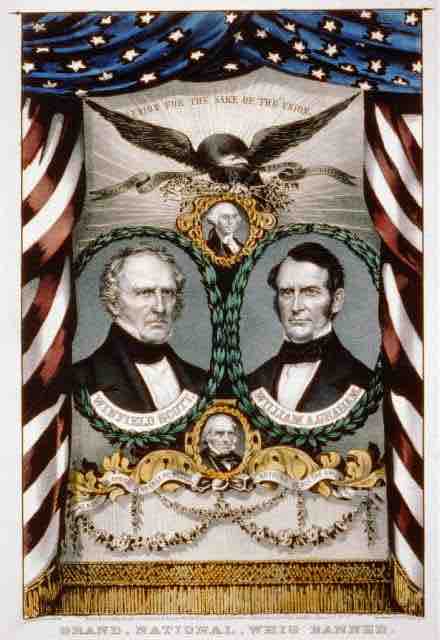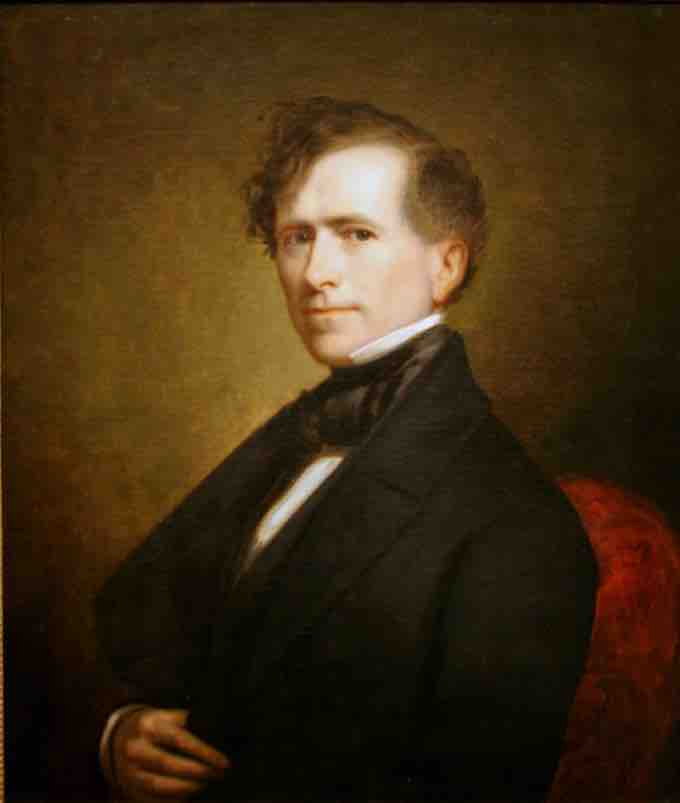The election of 1852 was the last election in which the Whig Party nominated a candidate before the party collapsed following Winfield Scott’s loss to Franklin Pierce. It was an election cycle characterized by high degrees of polarization along sectional rather than political lines.
Conventions
The 1852 Whig National Convention held in Baltimore was bitterly divided. Supporters of President Millard Fillmore, who had succeeded to the presidency after the death of President Taylor, counted the Compromise of 1850 as a success on Fillmore's record. However, Northern Whigs resented the Compromise of 1850, believing that the bill favored the slaveholding South. As a result, Northern Whigs threw their support behind Mexican-American War hero General Winfield Scott of Virginia, who went on to win the party’s nomination.

Scott-Graham poster
A campaign poster for Winfield Scott and William A. Graham.
The Democrats also met in Baltimore in June 1852 and selected Franklin Pierce—a rather obscure public figure at the time—as their candidate. Although Pierce hailed from the Northern state of New Hampshire, he defended the supremacy of states' rights as integral to maintaining a united nation and firmly supported the Compromise of 1850. Arguing that Pierce was a “Northern man with Southern principles,” Democrats were able to make a case for his nomination that appealed to both Northern and Southern party members. Southern Democrats were convinced that Pierce's administration would secure the future of slavery in the territories, while Northern Democrats were relieved to nominate a candidate who did not espouse radical proslavery or antislavery principles. Hence, the slavery issue split the party from the outset, which would continue to cause conflict among Democrats for much of Pierce's administration.
Result
Pierce and running mate William R. King won what was at the time one of the nation's largest electoral victories, trouncing Scott by 254 electoral votes to 42. The outcome was a testament to the sectional and organizational weaknesses within the Whig Party. During his years in office, Pierce’s support of the Compromise of 1850—particularly his rigorous enforcement of the Fugitive Slave Act—appalled and alienated many Northerners, including factions of the Democratic Party. With the demise of the Whig Party, many Northerners, bitterly resenting the heavy enforcement of the Fugitive Slave Act under Pierce, began to loosely coalesce with the emerging antislavery Republican Party.

Franklin Pierce
Franklin Pierce, Democratic Party candidate.